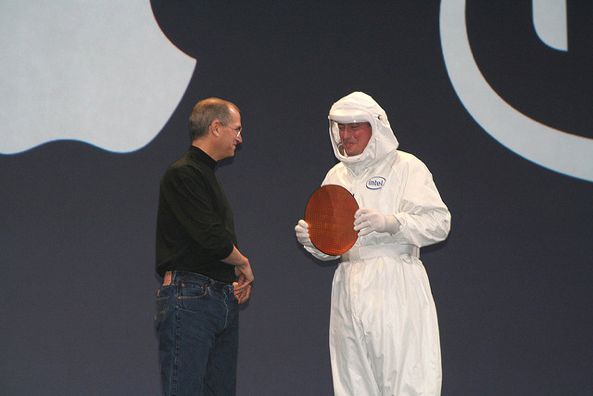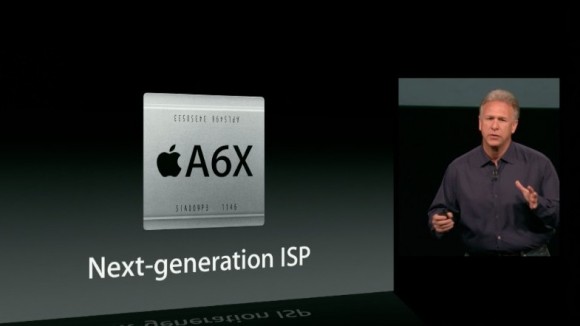A report Wednesday revives the old rumor that the world’s leading chip maker, Intel, is working on a strategic deal to manufacture processors that power Apple’s iPhones, iPads and iPods.
What’s different this time around, though, is the timing: Intel’s CEO Paul Otellini is on his way out and with CEO search still underway, the semiconductor giant could be poised to take its relationship with Apple to the next level.
The gist of the report is that Apple could contract Intel as a foundry, meaning the chip giant would tap its world-class manufacturing expertise to produce iPhone and iPad processors, as designed in-house by Apple, rather than persuade Tim Cook & Co. into adopting Intel’s own mobile Atom x86 chip architecture, which hasn’t made much inroads yet…
Reuters has the scoop:
Intel said last week it will open up its prized manufacturing technology to make chips designed by fellow chipmaker Altera – snagging its first sizeable customer in a contract manufacturing, or “foundry”, business expected to grow.
That has spurred talk of an Apple deal. A source close to one of the companies says Intel and Apple executives have discussed the issue in the past year but no agreement has been reached.
Intel, of course, has been a major supplier of processors for Mac notebooks and desktops since 2005.
Intel spokesman Chuck Mulloy told the news gathering organization the company is “in constant discussions with Apple,” though he wouldn’t comment on negotiations about a potential foundry relationship. With persisting rumors of Apple looking to distance itself from Samsung due to ongoing litigation, anything is possible.
If Apple is to take its lucrative chip making contract elsewhere, the company doesn’t really have much choice. There are only a few semiconductor makers that can meet Apple’s exacting standards in terms of volume, yields and advanced process technologies used to fab power-savvy mobile chips.
Samsung, which currently builds Apple’s in-house designed processors for iDevices at its sophisticated Austin, Texas plant, is one of them. The other oft-rumored potential partner is Taiwan Semiconductor Manufacturing Company (TSMC).
Reuters notes that Intel’s chip-manufacturing technology “is at least two years ahead” of TSMC’s or Samsung’s foundry, making talk of Intel-fabbed device silicon highly probable.
After Intel upped its capital spending budget by $2 billion to $13 billion this year, speculation grew that Apple could ink a deal to use Intel’s leading process technology to make better chips for its iPad and iPhone.
Doing so could help Apple end its foundry relationship with Samsung, which has become a fierce competitor with its own smartphones and tablets.
Shifting production of iPhone and iPad chips to Intel could be an additional $4.2 billion revenue opportunity for Intel in 2015, with a gross margin of around 50 percent, according to Macquarie analyst Shawn Webster.
http://www.youtube.com/watch?v=Ixl06h9RbBw
Interestingly enough, TSMC Chairman and CEO Morris Chang recently said his company has received a “very large volume” order from an unspecified customer, prompting watchers to speculate that the mysterious buyer could be Apple.
It has also been reported that the Taiwanese foundry is looking to fab a next-gen processor for a “breakthrough” Apple device on its upcoming cutting-edge 16nm FinFET process. At any rate, looks like Samsung will be the big loser, even if Apple is only looking to diversify its chip suppliers.

